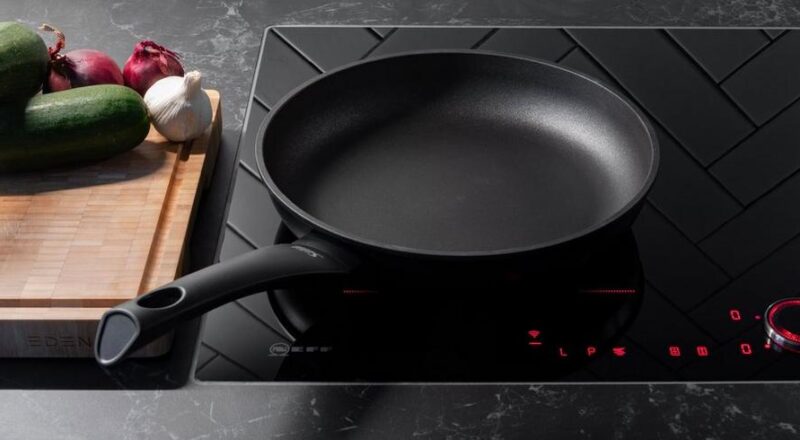The question of whether cast iron should hum on induction cooktops is a hot topic among cooking enthusiasts and kitchen professionals alike. Many wonder if this humming sound is normal or indicative of a problem. In this article, we will delve into the reasons behind this phenomenon and help you understand its implications for your cooking experience.

Understanding Induction Cooking
Induction cooking has gained popularity due to its efficiency and speed. Unlike traditional cooking methods, induction uses electromagnetic fields to directly heat pots and pans. This means that the cookware itself becomes the heat source, leading to faster and more even cooking.
How Induction Cooktops Work
Induction cooktops contain copper coils beneath the surface. When an electrical current passes through these coils, it creates a magnetic field. This field interacts with the cast iron pan, causing it to heat up. The heat generated is due to the resistance of the metal to the magnetic field, which is why only ferrous materials like cast iron and stainless steel are suitable for induction cooking. For more detailed information about how induction cooktops work, you can visit HowStuffWorks.
Why Does Cast Iron Hum on Induction?
The humming noise you hear when using cast iron on induction is a result of the electromagnetic field interacting with the metal. This interaction causes the pan to vibrate at a frequency that is audible to humans. The humming is generally not a cause for concern and is considered normal.
Factors Influencing the Humming Sound
- Pan Thickness: Thicker pans may produce more pronounced humming due to increased resistance.
- Power Level: Higher power settings may intensify the humming noise.
- Cooktop and Pan Compatibility: Some pans and cooktops may create a stronger magnetic field, resulting in more noise.
Is the Humming Sound Harmful?
The humming sound is typically harmless and should not affect the performance of your cookware or cooktop. It is simply a byproduct of the induction process. If the noise becomes excessively loud or is accompanied by other issues such as uneven heating, it may indicate a compatibility problem or a defect in the cookware or cooktop.
Minimizing the Humming Sound
If you find the humming sound bothersome, consider the following tips:
- Use a lower power setting to reduce the intensity of the magnetic field.
- Ensure your cookware is flat and makes full contact with the cooktop surface.
- Consider using different induction-compatible cookware that might produce less noise.
Benefits of Using Cast Iron on Induction
Despite the humming noise, cast iron offers numerous benefits when used on induction cooktops. Its excellent heat retention and distribution properties make it ideal for various cooking techniques, from frying to slow simmering.
Maintaining Even Heating
One common concern with cast iron on induction is the potential for cold spots, which can lead to uneven cooking. Ensuring your pan is properly seasoned and in good condition can help mitigate this issue. For more insights on managing uneven heating, you can explore Uneven Browning on induction cooktops.
Durability and Longevity
Cast iron cookware is known for its durability and longevity, making it a valuable investment for any kitchen. With proper care, these pans can last a lifetime and continue to perform well on induction cooktops.
Potential Issues with Cast Iron on Induction
While cast iron is generally a great choice for induction cooking, there are some potential issues to be aware of.
Cold Spots
Cold spots can occur if the pan does not make full contact with the cooktop. This can lead to uneven cooking and is something to be mindful of. For more information, check out Cold Spots in cast iron on induction.
Smoke and Odors
If your cast iron cookware becomes smoky or emits odors during use, it may indicate that the pan is not properly seasoned or that food residue is burning. Proper cleaning and seasoning can help address these issues. Learn more about dealing with these problems on Smoky Cast Iron.
Choosing the Right Cookware for Induction
When selecting cookware for induction cooking, it’s important to ensure that it is magnetic and compatible with your cooktop. Not all cast iron cookware is suitable for induction, so verifying compatibility is crucial. For tips on choosing the right cookware, visit Cast Iron Compatibility.
Conclusion
In conclusion, the question of whether cast iron should hum on induction is easily answered: yes, it can, and it usually does. This humming sound is a normal aspect of induction cooking and is not typically a cause for concern. By understanding the reasons behind the noise and following the tips provided, you can enjoy the benefits of using cast iron on your induction cooktop without worry.

Frequently Asked Questions
Why does my cast iron make noise on induction?
The noise is due to vibrations caused by the electromagnetic field interacting with the metal. It’s a normal phenomenon.
Is it safe to use cast iron on induction cooktops?
Yes, it’s safe. Cast iron is compatible with induction cooktops and offers excellent heat retention and distribution.
How can I reduce the humming sound?
To minimize the hum, use a lower power setting, ensure full contact between the pan and cooktop, and consider trying different cookware.
This article contains affiliate links. We may earn a commission at no extra cost to you.

